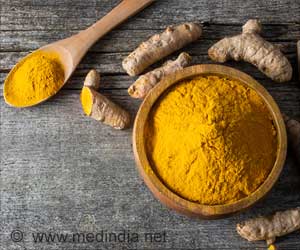The anti-inflammatory property of turmeric from curcumin relieves pain as effectively as prescription painkillers.
It is important to remember that a pinch of
black pepper powder and some fat like ghee are needed to properly absorb turmeric in the blood.
Turmeric powder also acts as an anti-allergen to keep
asthma under during winter. Having a half cup of lukewarm water with a spoonful of turmeric, and a pinch of salt before going to bed will relieve dry cough.
Turmeric’s anti-fungal properties make it an excellent antiseptic. Traditionally, a turmeric paste is applied to the affected area in case of injuries.
Turmeric enhances the flavor of meals while aiding indigestion. Daily consumption of turmeric can also control blood sugar levels.
The healing properties of turmeric also include its blood-thinning property that aids in heart health, reduces cancer risk, and treats brain-related ailments like dementia, Alzheimer’s disease, and depression.
Turmeric is not just a spice used extensively in Indian cuisine but also a superfood. Today, many foods are made up of artificial flavors and chemicals so spicing up with turmeric can be a wise option.
References:
- Turmeric: A spice with multifunctional medicinal properties
– (https://www.researchgate.net/publication/285776797_Turmeric_A_spice_with_multifunctional_medicinal_properties) - Herbal Medicine: Biomolecular and Clinical Aspects. 2nd edition.
– (https://www.ncbi.nlm.nih.gov/books/NBK92752/) - Turmeric Potential Health Benefits
– (https://journals.lww.com/nutritiontodayonline/fulltext/2020/01000/turmeric__potential_health_benefits.9.aspx)
Source: Medindia



